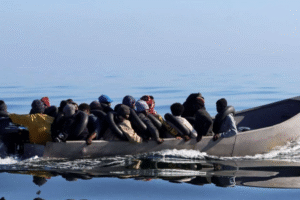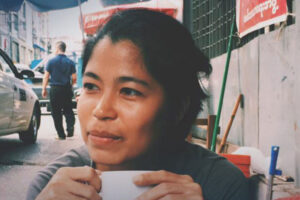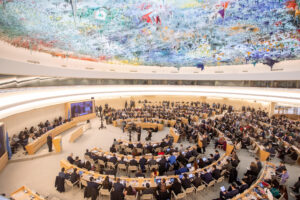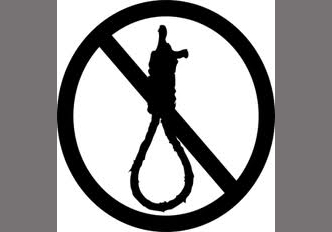
May 13, 2016 | News
The ICJ and other human rights organizations condemn the imminent executions of Kho Jabing in Singapore and at least 15 individuals which apparently includes, 4 Chinese nationals, 2 Nigerians, 2 Zimbabweans, 1 Senegalese, 1 Pakistani and 5 Indonesian nationals in Indonesia.
The organizations call on the authorities of the two countries to halt the impending executions.
On 12 May 2016, the family of Kho Jabing, a Malaysian national on death row in Singapore, received a letter from the Singapore Prisons informing them that he would be executed on 20 May 2016. Kho Jabing was convicted of murder in 2011.
Of particular concern is the fact that there was a lack of unanimity in sentencing Kho Jabing to death, which demonstrates that reasonable doubt exists as to whether he deserved the death penalty.
As regards the imminent executions that will be taking place in Indonesia, Indonesia would contravene her own international obligations under the International Covenant on Civil and Political Right by executing these individuals.
The Association of South East Asian Nations Member States (“ASEAN”), including Singapore and Indonesia, have continuously emphasized the importance of the rule of law and the protection of rights.
The death penalty therefore stands out as an aberration.
In December 2014, the United Nations General Assembly adopted its latest resolutions calling on all States to adopt a moratorium on the use of the death penalty, with a view towards abolition.
A record number of 117 Member States supported the Resolution.
Regrettably, Indonesia abstained and Singapore voted against the Resolution.
The ASEAN Member States must use the opportunity presented by this Resolution to align themselves with the global movement towards abolition.
Singapore has recently undergone its second Universal Periodic Review in January 2016.
The continued use of the death penalty was one of the key highlights of the review, with Singapore receiving over 30 recommendations related to the death penalty, including recommendations to abolish the death penalty.
In 2015, Indonesia, a United Nations Human Rights Council Member until 2017, executed 14 individuals convicted of drug-related offences amid strong international opposition.
The imminent executions would further damage Indonesia’s human rights record and erode her standing in the international community.
The death penalty has no place in the 21st Century.
Not only is there a real possibility of wrongful executions, it deprives inmates of their life and dignity, and creates new classes of victims.
We strongly urge the governments of Singapore and Indonesia to halt the upcoming executions, immediately impose a moratorium on the use of the death penalty and take meaningful steps towards its eventual abolition.
List of signatories:
Anti-Death Penalty Network Asia (ADPAN)
Center for Prisoner’s Rights Japan (CPR)
Community Action Network (CAN, Singapore)
Free Community Church (Singapore)
Function 8 (Singapore)
MADPET (Malaysians Against Death Penalty and Torture)
Maruah (Singapore)
International Commission of Jurists (ICJ)
Journey of Hope
Legal Aid Community (LBH Masyarakat, Indonesia)
Murder Victims’ Families for Human Rights (MVFHR)
Ocean
Pusat Studi Hukum dan Kebijakan Indonesia (The Indonesian Center for Law and Policy Studies)
Reprieve Australia
Sayoni (Singapore)
Singapore Anti-Death Penalty Campaign (SADPC)
Suara Rakyat Malaysia (SUARAM)
Taiwan Alliance to End the Death Penalty (TAEDP)
The Commission for the Disappeared and Victims of Violence (KontraS, Indonesia)
The Indonesian Center for Law and Policy Studies (PSHK, Indonesia)
The Institute for Criminal Justice Reform (ICJR, Indonesia)
The Institute for Policy Research and Advocacy of Indonesia (ELSAM)
The National Human Rights Society, Malaysia (HAKAM)
Think Centre Singapore
We Believe in Second Chances (WBSC, Singapore)
Contact:
Sam Zarifi, ICJ Asia-Pacific Director, t: +66-807-819-002; e: sam.zarifi(a)icj.org
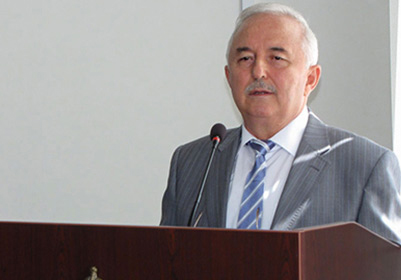
May 12, 2016 | Новости, Статьи
МКЮ обеспокоена сведениями об отставке федеральных судей в Чеченской Республике Российской Федерации, которая, по всей видимости, произошла под давлением исполняющего обязанности главы Чеченской Республики Рамзана Кадырова, заявившего, что добровольная отставка судей будет «самым правильным решением в их жизни».
МКЮ считает данные высказывания, прямым следствием которых, очевидно, и стала отставка федеральных судей, недопустимым вмешательством в функционирование и независимость судебных органов.
МКЮ призывает судебные органы Российской Федерации сделать всё возможное, чтобы обеспечить сохранение гарантированных сроков пребывания судей в должности, а также проверку любых заявлений о совершении судьями дисциплинарных проступков в рамках надлежащего дисциплинарного производства с соблюдением права на справедливое судебное разбирательство.
Кроме того, МКЮ призывает исполнительные органы воздержаться от любых комментариев, которые могут подорвать независимость судебных органов.
5 мая Рамзан Кадыров, исполняющий обязанности главы Чеченской Республики, посоветовал ряду судей добровольно подать в отставку.
Кадыров разместил пост в социальных сетях, в котором обратился к таким проблемам, как необъективные судебные решения, затягивание рассмотрения уголовных дел, решения по жилищным спорам, а также противоречивые решения.
Кадыров отметил, что, хотя все эти примеры единичны и малочисленны, они не способствуют росту доверия населения к судебной системе.
Кроме того, он рекомендовал Председателю Верховного Суда Чеченской Республики Магомеду Каратаеву и трём другим судьям, Тахиру Мурдалову, Супьяну Яндарову и Зайнди Хусаинову, подать в отставку, «если у них есть понятие чести и профессиональной этики».
Сообщается, что судьи Урус-Мартановского городского и Грозненского районного судов Супьян Яндаров и Зайнди Хусаинов в тот же день подали заявления об отставке.
Предположительно, Председатель Верховного Суда Чечни Магомед Каратаев и его заместитель Тахир Мурдалов также направили заявление об отставке.
Данные отставки, которые, очевидно, являются непосредственной реакцией на критику со стороны исполнительных органов власти, подрывают принцип разделения властей и независимости судебных органов в Российской Федерации.
В соответствии с международным правом, в том числе с правом на справедливое судебное разбирательство, которое защищается, помимо прочего, статьёй 6 Европейской Конвенции по правам человека и статьёй 14 Международного пакта о гражданских и политических правах, должна быть обеспечена независимость судебных органов.
Основные принципы ООН, касающиеся независимости судебных органов, предусматривают, что «все государственные и иные учреждения обязаны уважать и соблюдать независимость судебных органов», и устанавливают, что судебные органы не могут подвергаться «каким-либо ограничениям, неправомерному влиянию, … давлению, угрозам или вмешательству, прямому или косвенному, с чьей бы то ни было стороны и по каким бы то ни было причинам».
Несмотря на то, что у судей есть обязанность соблюдать судейскую этику и они должны привлекаться к ответственности за профессиональные проступки, представители исполнительных органов власти должны воздержаться от заявлений, которые ставят под угрозу независимость судебных органов.
В соответствии с Рекомендацией Совета Европы, «исполнительные и законодательные органы власти должны воздержаться от критики, которая может подорвать независимость судебных органов или общественное доверие к ним» (Рекомендация (2010) 12, параграф 18).
Давление на судей со стороны исполнительных органов власти с целью вынудить их подать в отставку может свести на нет гарантированные сроки пребывания судей в должности, которые защищаются национальным и международным правом и стандартами.
В соответствии с принципом 12 Основных принципов независимости судебных органов, «судьи, назначаемые или выборные, имеют гарантированный срок полномочий до обязательного выхода на пенсию или истечения срока полномочий, где таковой установлен».
По международным стандартам, заявления о совершении судьями дисциплинарных проступков должны рассматриваться самоуправляемыми органами судебной власти в рамках справедливого дисциплинарного производства.
В соответствии с Основными принципами ООН, единственным основанием для прекращения полномочия судей является их «неспособность выполнять свои обязанности или поведение, делающее их несоответствующими занимаемой должности».
Кроме того, заявления Рамзана Кадырова противоречат законодательству Российской Федерации, которое подробно регламентирует порядок привлечения судей к дисциплинарной ответственности в случае совершения дисциплинарных проступков.
RUSSIA-Chechen judges statement-News-web story-2016-RUS (полный текст на русском, PDF)
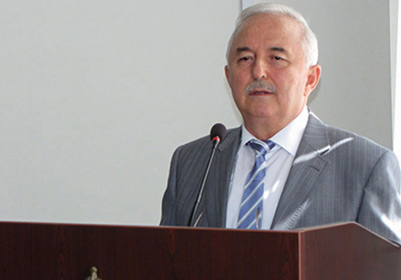
May 12, 2016 | News
The ICJ is concerned at the reported resignations of federal judges in the Chechen Republic of the Russian Federation following apparent pressure by the acting Head of the Republic Ramzan Kadyrov who had suggested that resignation would be the “most correct decision of their lives”.
The ICJ considers these statements, which appear to have led directly to the resignations of federal judges, to be inappropriate interference with the functioning and independence of the judiciary.
The ICJ calls on the Russian Federation judicial authorities to take all measures within their power to ensure that all judges’ security of tenure is preserved and that any allegations of misconduct are addressed through appropriate disciplinary proceedings that respect the right to a fair hearing.
The ICJ further calls on the executive authorities to refrain from any comments which may undermine the independence of the judiciary.
On 5 May, Ramzan Kadyrov, currently acting Head of the Chechen Republic, recommended that several named judges should step down.
In his post on social media, Kadyrov identified as problems unfair decisions of courts, procrastination in criminal cases, decisions regarding housing and inconsistent decisions.
He mentioned that although examples of such decisions were sporadic, they did not help build trust in the judiciary.
He then recommended that the President of the Supreme Court of the Chechen Republic, Magomed Karatayev (photo) and three other judges, Takhir Murdalov, Sulyan Yandarov and Zayndi Khusainov, should resign “if they had a notion of honour and professional ethics”.
It was reported that two judges of the Urus-Martan City Court and Grozny District Court, Sulyan Yandarov and Zayndi Khusainov, submitted their resignations on the same day.
The President of the Supreme Court of Chechnya, Magomed Karatayev, and his deputy Takhir Murdalov, are reported to have already filed a request for resignation.
The resignations, apparently in direct response to criticism by the executive, undermine the separation of powers and the independence of the judiciary in the Russian Federation.
Under international law, including the right to a fair trial protected, inter alia, by Article 6 of the European Convention on Human Rights and Article 14 of the International Covenant on Civil and Political Rights, the independence of the judiciary must be guaranteed.
The UN Basic Principles on Independence of the Judiciary enshrines “the duty of all governmental and other institutions to respect and observe the independence of the judiciary” and provides the judiciary shall not be subject to “any restrictions, improper influences…pressures, threats or interferences, direct or indirect from any quarter or for any reason.”
While judges have an obligation to adhere to judicial ethics and should be held accountable for professional misconduct, the representatives of the executive must refrain from statements which jeopardize the independence of the judiciary.
The Council of Europe’s Recommendation on judges specifies that “the executive and legislative powers should avoid criticism that would undermine the independence of or public confidence in the judiciary.”
Public pressure from the executive on judges to resign can nullify the security of tenure of judges protected under national and international law and standards.
According to Principle 12 of the Basic Principles on the Independence of the Judiciary, “[j]udges, whether appointed or elected, shall have guaranteed tenure until a mandatory retirement age or the expiry of their term of office, where such exists.”
Under international standards, allegations of misconduct against judges should be dealt with by the self-governing institutions of the judiciary, through fair disciplinary procedures.
Under the Basic Principles, the only basis for removal of judges is “incapacity or behaviour that renders them unfit to discharge their duties.
The comments by Ramzan Kadyrov also run contrary to the legislation of the Russian Federation, which spells out in detail the procedure for disciplinary measures against judges in case of alleged professional misconduct.
RUSSIA-Chechen judges statement-News-web story-2016-RUS (full text in Russian, PDF)
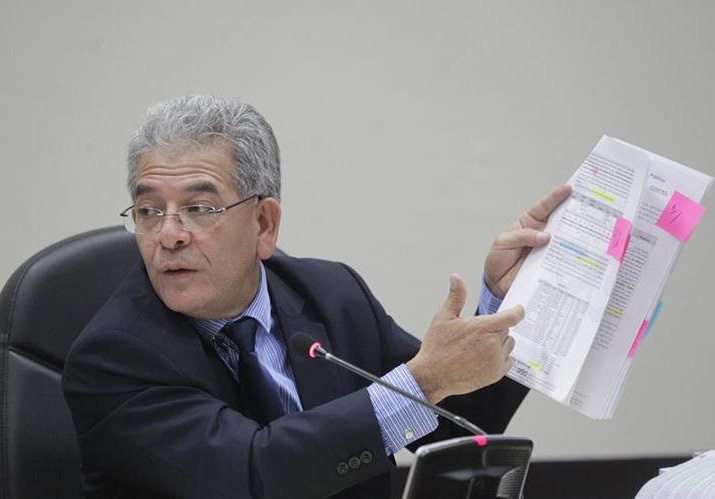
May 11, 2016 | Artículos, Noticias
En los días pasados, el juez Miguel Ángel Gálvez ha sido víctima de amenazas que pretenden intimidarlo en su función de administración de la justicia.
La CIJ expresa su repudio ante cualquier tipo de presión en contra de operadores de justicia independientes y honestos.
Estas presiones no solamente amenazan la integridad física del juez Gálvez, sino también el trabajo valioso que realiza administrando justicia en casos de alto impacto.
Según los Principios Básicos de las Naciones Unidas Relativos a la Independencia de la Judicatura, no se permitirán intromisiones indebidas o injustificadas en los procesos judiciales.
Es esencial que los jueces puedan resolver los casos que conozcan con imparcialidad y sin restricción alguna.
La CIJ demanda que el Estado investigue estos actos intimidatorios y tome medidas efectivas de protección, para garantizar la seguridad física del juez Miguel Ángel Gálvez.
Ramón Cadena, Director de la CIJ para Centroamérica expresó: “Urgimos a las autoridades del Estado y en particular al Organismo Judicial a tomar medidas adecuadas para evitar que las y los jueces independientes resulten afectados por este tipo de intimidaciones y que se respete la integridad física y la independencia del juez Miguel Ángel Galvez.”
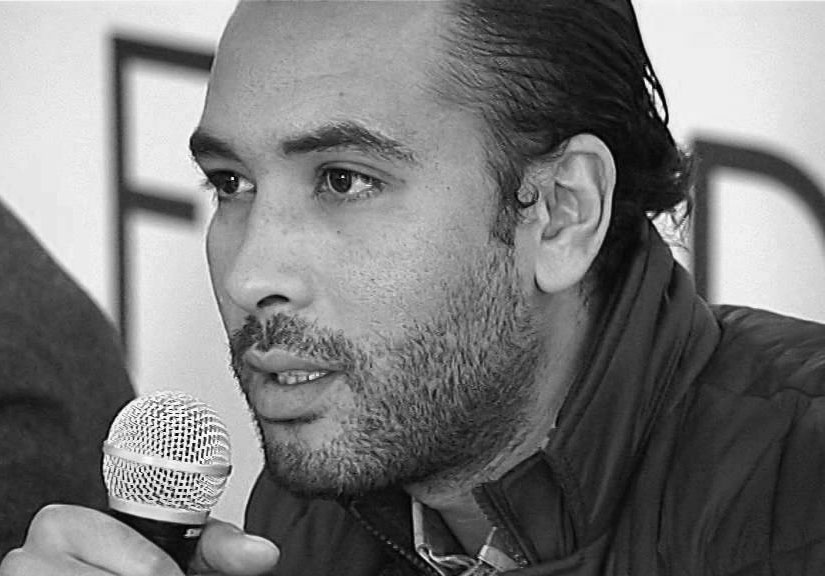
May 10, 2016 | News
The ICJ today called on the Egyptian authorities to immediately release human rights lawyer Malek Adly and to drop all charges against him. He was arrested on Thursday 5 May 2016, pursuant to an arrest warrant.
Malek Adly has been charged with a number of offences, including “attempting to overthrow the regime,” “spreading false rumors,” and “using force against a public servant.”
The Prosecuting authorities have not provided information on specific behaviour that would constitute criminal conduct.
The ICJ is concerned that the charges may be in retaliation for Malek Adly’s work as a lawyer and human rights defender, and are aimed to chill him and others from engaging in work perceived as threatening to or disfavoured by Egyptian authorities.
They came at the backdrop of his work as a human rights lawyer, his critical views on the rule of law situation in Egypt, and his legitimate and peaceful exercise of freedom of expression and assembly in opposing transferring the sovereignty of Tiran and Sanafir islands from Egypt to Saudi Arabia, the ICJ says.
“Malek Adly’s arrest, detention and prosecution for carrying out his work as a lawyer and human rights defender and for peacefully expressing his views is yet another attempt by the Egyptian regime to muzzle lawyers, the last line of defence for victims of human rights violations in Egypt,” said Said Benarbia, Director of the ICJ Middle East and North Africa Programme.
“The regime’s crackdown on fundamental rights and freedoms has been worryingly extended to the very lawyers whose role is to challenge and protect against such crackdown,” he added.
Over the last three years, the ICJ has documented numerous cases of lawyers who have been subjected to human rights violations and reprisals in relation to the representation of their clients.
These include the cases lawyers Imam Afifi and Karim Hamdi who were allegedly subjected to torture and subsequently died while in police custody.
International standards aiming to safeguard the role of lawyers provide that States have a duty to ensure that lawyers are able to perform their functions “without intimidation, hindrance, harassment or improper interference” and that lawyers must not be subject to prosecution or other sanction for carrying out their professional responsibilities, the Geneva-based organization reminds.
International standards on human rights defenders require States protect human rights defenders from attacks, threats, retaliation and arbitrary action.
The Egypt 2014 Constitution guarantees the “independence of the lawyer’s profession and the protection of its interests as a guarantee to protecting the right to defence”. In addition, it prohibits the arrest of a lawyer while he or she is exercising the right to defence, except in flagrante delicto crimes.
“The Egyptian authorities must live up to their obligations under the Constitution and international law and put an immediate end to their attacks against lawyers,” concluded Benarbia.
Contact
Nader Diab, Associate Legal Adviser of the ICJ Middle East and North Africa Programme, t: +216 51727023; e: nader.diab(a)icj.org
Egypt-HR Lawyer MalekAdly-News-Press Releases-2016-ARA (full text in Arabic, PDF)







